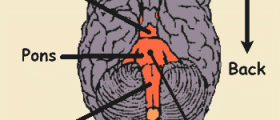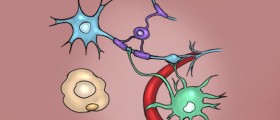
Nervous system is an organ system in the human body that is composed of a network of specialized cells known as neurons. Neurons, or nerve cells, are electrically excitable cells that can process and transmit information by electrical and chemical signaling. Neurons actually transmit signals between the brain and other parts of the body. These components of the nervous system are linked together with the brain, spinal cord, and peripheral ganglia. They divide in numerous specialized types of nerve cells, responding to touch, sound, light and many other stimuli. Nervous system is vulnerable to break down in a wide variety of ways. Some of the diseases that affect the nervous system are genetic defects while the others occur due to trauma, poisoning, infection or aging. Here are some of the most common nervous system disorders.
Cerebral palsy
This is a whole spectrum of disorders that embraces a group of motor conditions that cause physical disability in human development. The condition results from the damage in the motor control centers of the developing brain. Cerebral palsy may have an onset during pregnancy, childbirth or even after birth up to age three. Patients affected by cerebral palsy have limited movement, disturbances in sensation, sight and communication. In some cases, even the cognition is affected.EpilepsyEpilepsy is a very common chronic neurological disorder. The main features of this condition are seizures that result from excessive or synchronous neuronal activity in the brain. This disease usually occurs during childhood or in people older than 65 years. This condition is controlled by mediation and can be alleviated or cured using the surgery.
Meningitis
Meningitis is the inflammation of the meninges – protective membranes covering the brain and spinal cord. Meningitis can be caused by various infections, including viral, bacterial and fungal. Sometimes, meningitis is caused by certain drugs. This is a serious disease that may be life-threatening. Typical symptoms include persistent headache and stiffness of the neck, accompanied with fever, confusion, vomiting, photophobia, and phonophobia.
Encephalitis
Encephalitis is the acute inflammation of the brain characterized by headache, confusion, fatigue, fever and drowsiness. In serious cases, it may manifest in hallucinations, seizures and severe memory problems. Encephalitis is usually caused by herpes simplex virus type I.
Headaches
Headache is defined as a feeling of pain anywhere in the head or neck. This is not a disease itself but rather a symptom of different conditions of the head and neck. Pain associated with headache is caused by the disturbance of the pain-sensitive structures around the brain.
















Your thoughts on this
Loading...